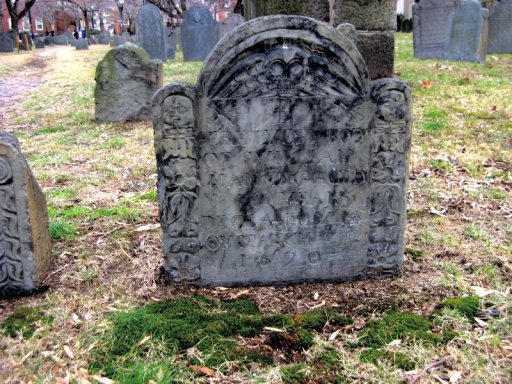He was a colonist, whose father, of the same name, also came to Massachusetts with his family. They settled at Cambridge, where he purchased an estate in 1638. He was a merchant, largely engaged in navigation, and a member of the first church, as messenger of which he was sent to England in 1669 to invite the Reverend Urian Oakes to become its pastor. Both him and Deacon John Cooper, by appointment of the Colonial government, directed the rebuilding of Harvard hall, and collected and disbursed the moneys that were raised for its construction. ( Source .)
1614
| 1614 • The University of Groningen is established in the Dutch Republic. |
1634
Age: 20y
|
|
immigrationCambridge, Middlesex, Massachusetts, USA ⇓ The journey to New England was difficult, and the family likely stayed in Roxbury for 9-10 weeks. William Manning Sr. said that ""When the Lord brought me to sea, I was overcome with a discontented mind, meeting there with hard and sad trials as fear of loss of my wife".[4/97]". William Manning Sr. and his wife Susanna, along with their son William, immigrated to New England in part because of Rev. Thomas Hooker. Hooker was a prominent puritan preacher, who wanted more tolerance between Christian denominations, and broke away from the Massachusetts colony to later form a colony in Connecticut. He is often called the "Father of the Connecticut". While the Manning family remained in Massachusetts, the following image is of an illustration of Rev. Hooker and his followers reaching Connecticut. 2 Sources ⇓ |
| 1634 • The first performance of the Oberammergau Passion Play is held in Bavaria. |
1643
Age: 29y
|
|
residenceCambridge, Middlesex, Massachusetts, USA ⇓ They were members of the first church in Cambridge. 1 Source ⇓ |
| 1643 • First meeting of the Westminster Assembly of Divines |
1644
Jul 21
Age: 30y
|
|
birth of childSamuel Manning Cambridge, Middlesex, Massachusetts, USA ⇓ 2 Sources ⇓ |
| 1644 • Areopagitica by John Milton is published in England. |
1672
Age: 58y
|
|
eventCambridge, Massachusetts, USA ⇓ While Harvard was created in 1636, by 1672 the building had fallen into disrepair. The General Court of the colony appointed William Manning Junior to manage the business of the construction project at Harvard, while Deacon John Cooper was there to officially stand for the church. The project was funded by local parishes, and often they only could afford payment through goods such as grain or chickens. Manning had to negotiate, trade, and barter with all the parishes, converting these goods into currency, as well as find craftsman, and manage the project as a whole. Harvard Hall was finished five years later in 1682. The illustration is a sketch of it. 1 Source ⇓ |
| 1672 • The Kingdom of France declares war on the Dutch Republic, invading the country on April 29. |
1690
Mar 14
Age: 76y
| 1690 • French physicist Denis Papin, while in Leipzig and having observed the mechanical power of atmospheric pressure on his 'digester', builds a working model of a reciprocating steam engine for pumping water, the first of its kind, though not efficient. |
